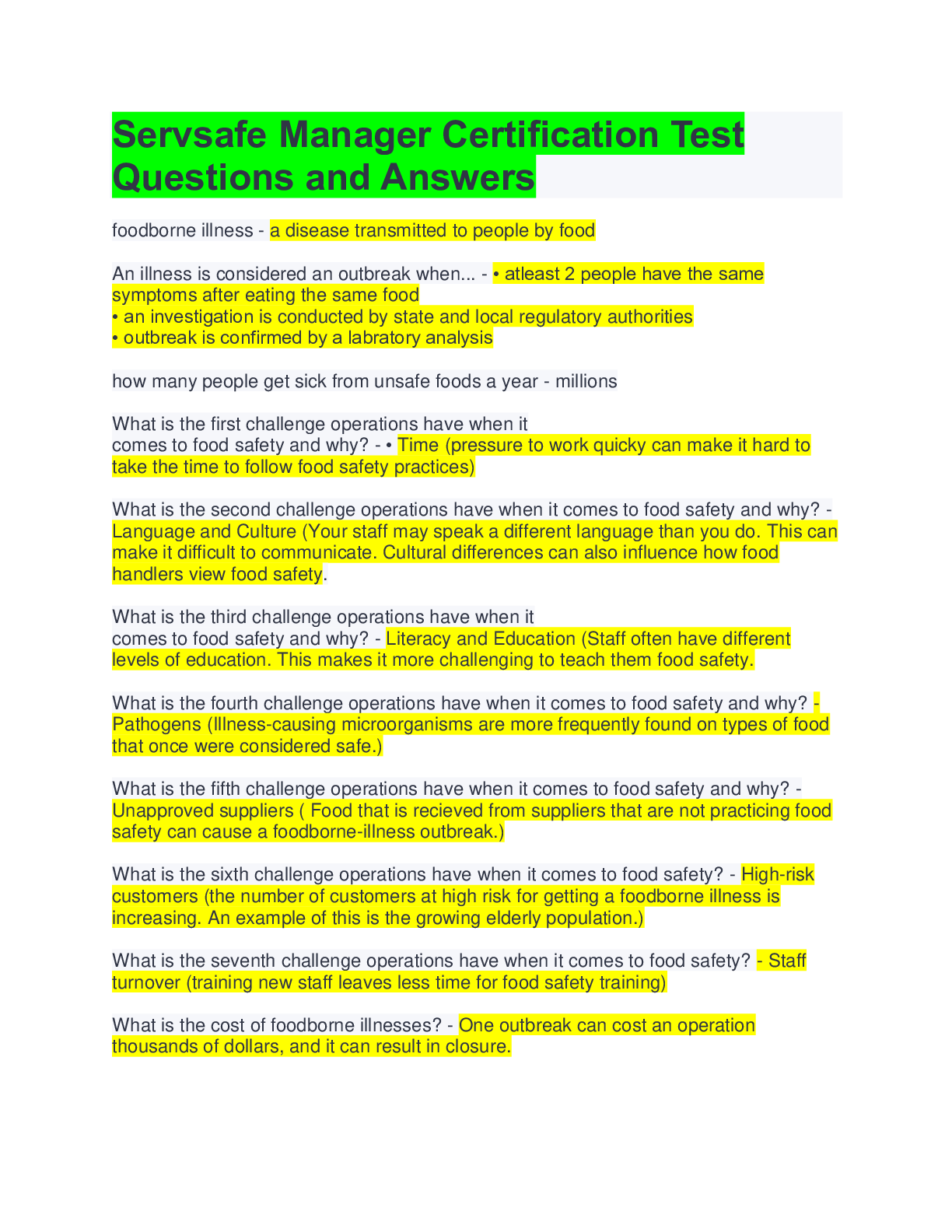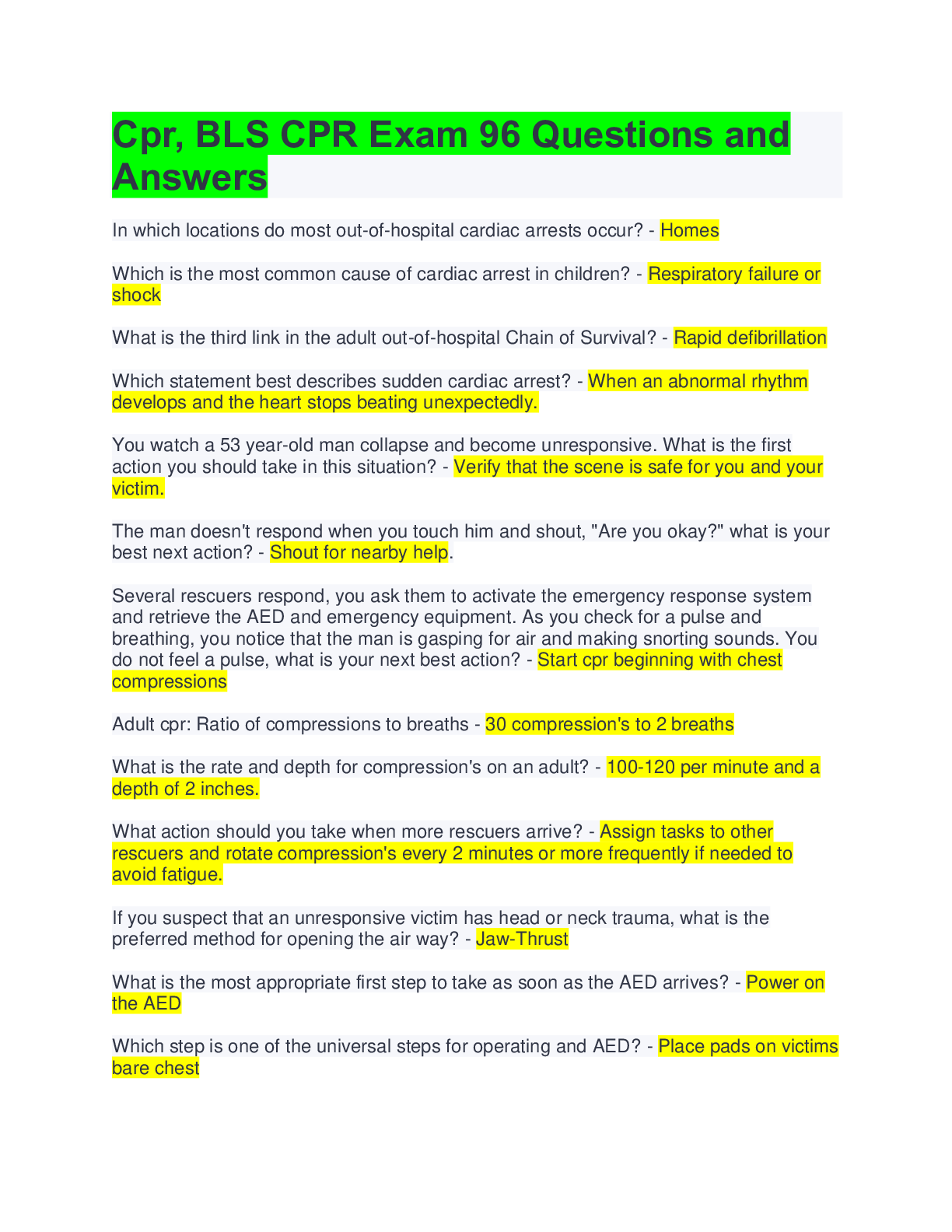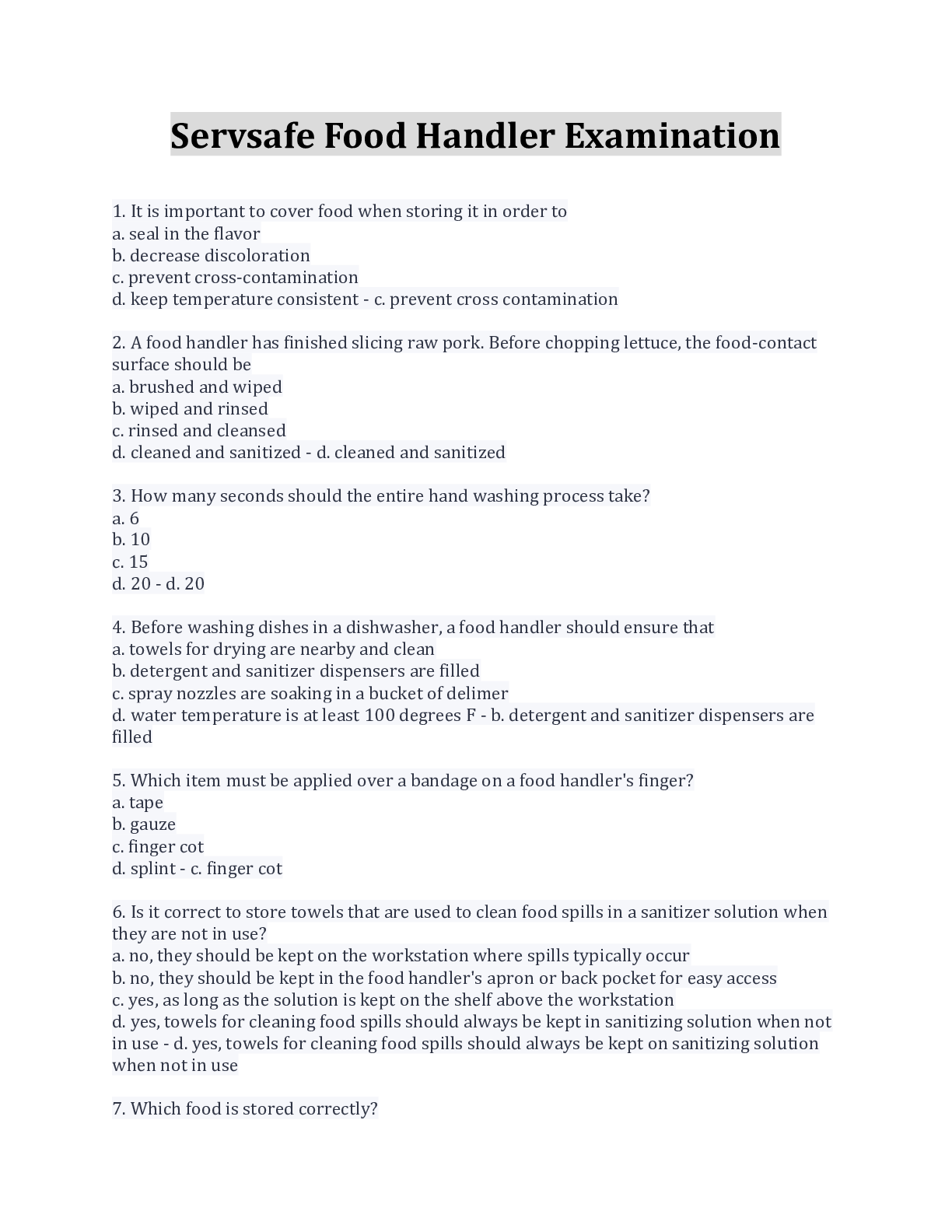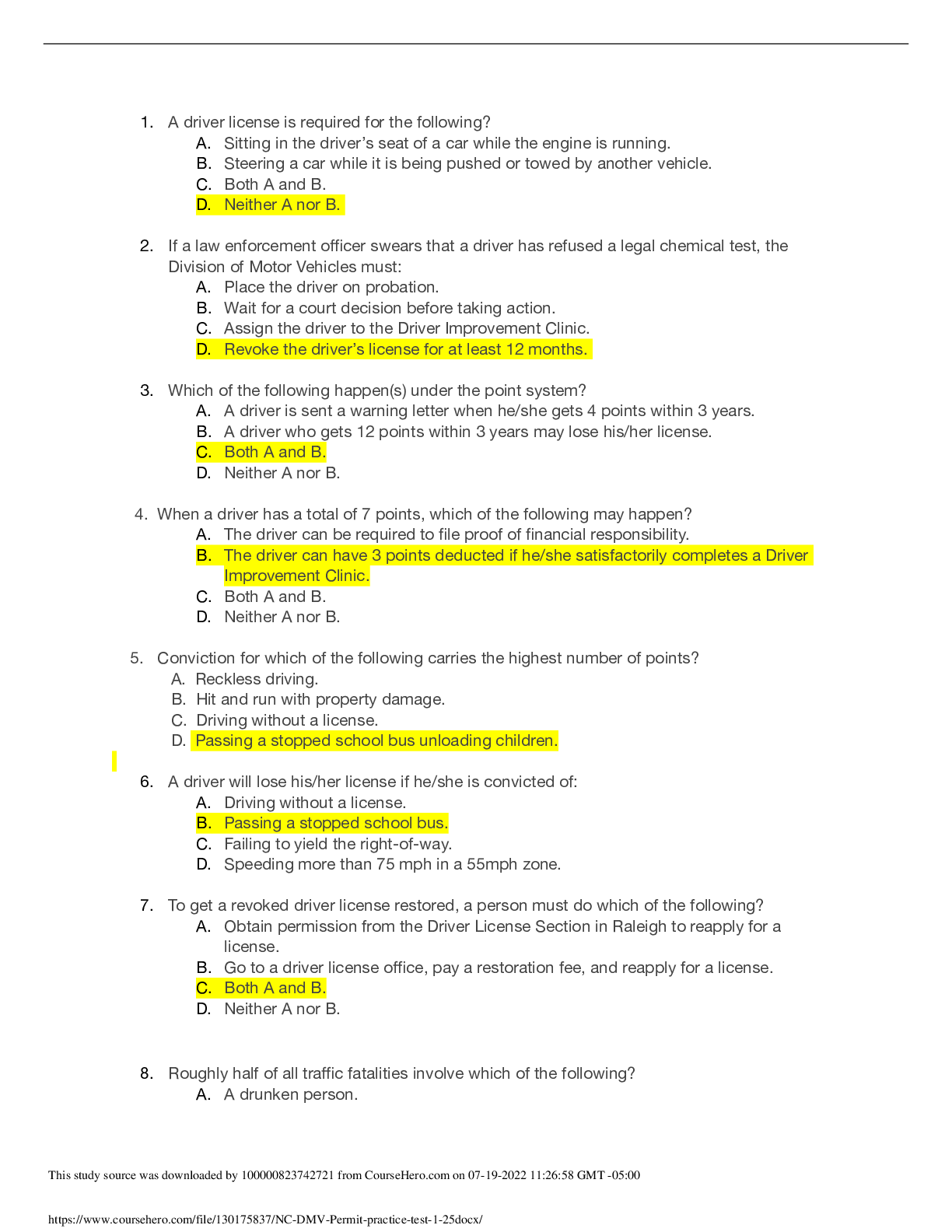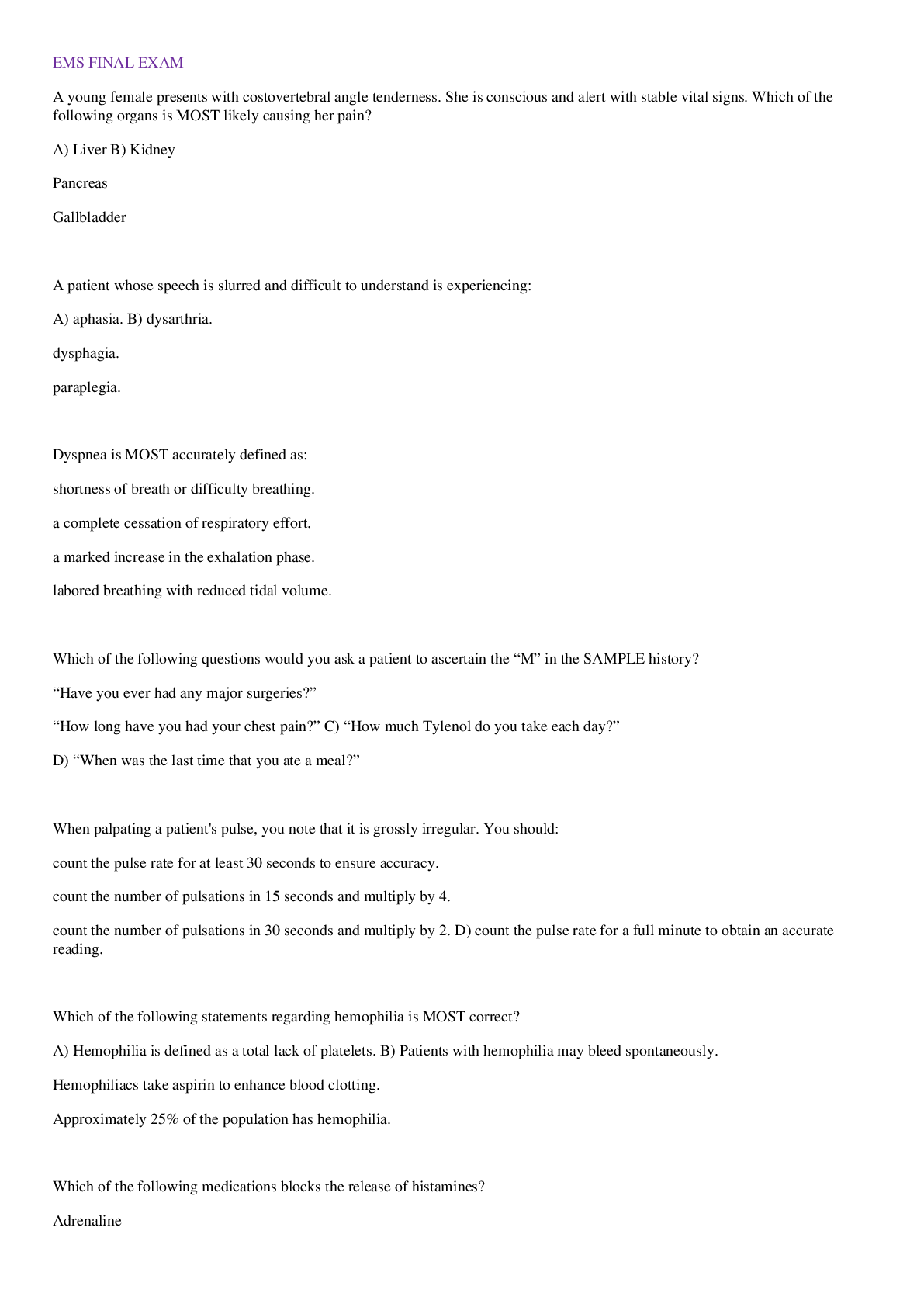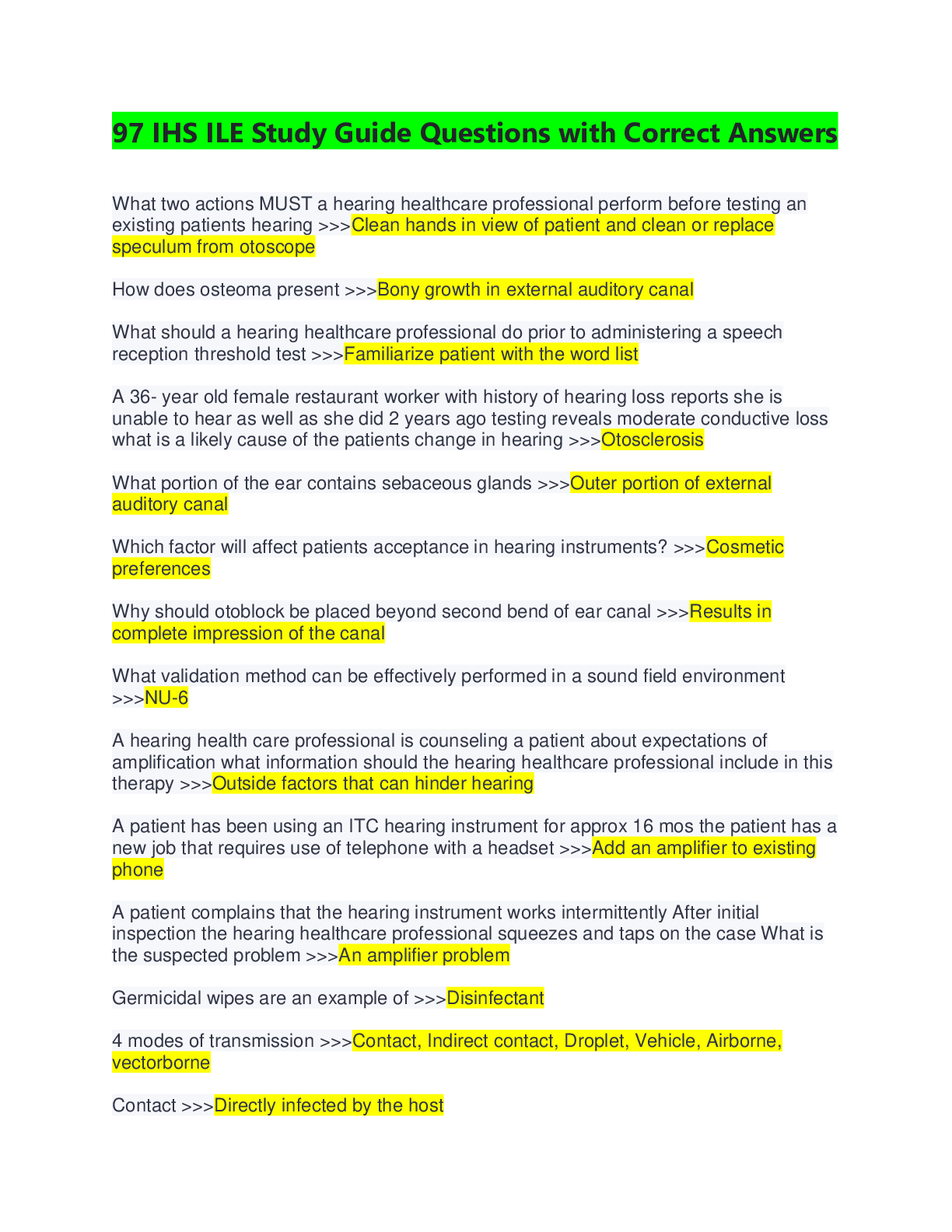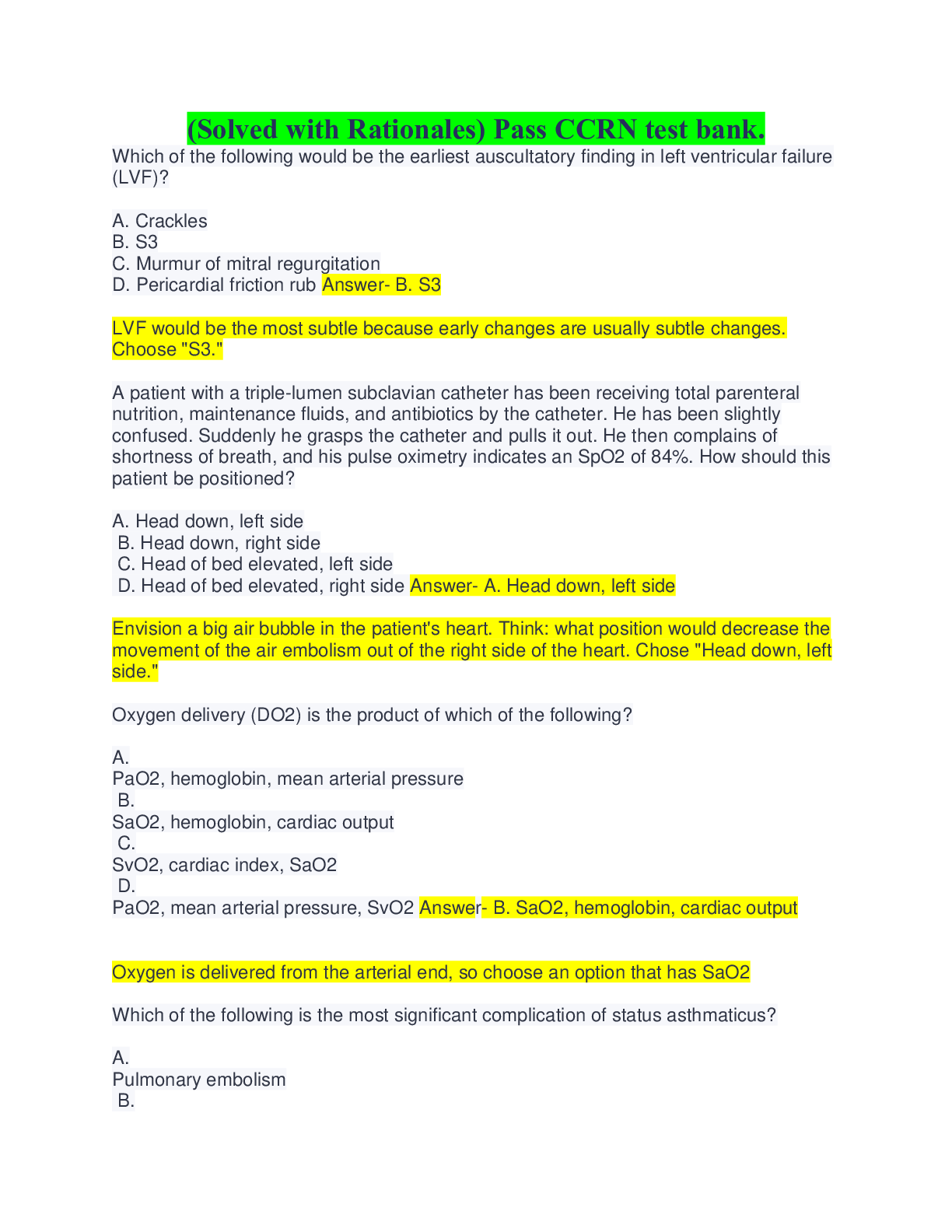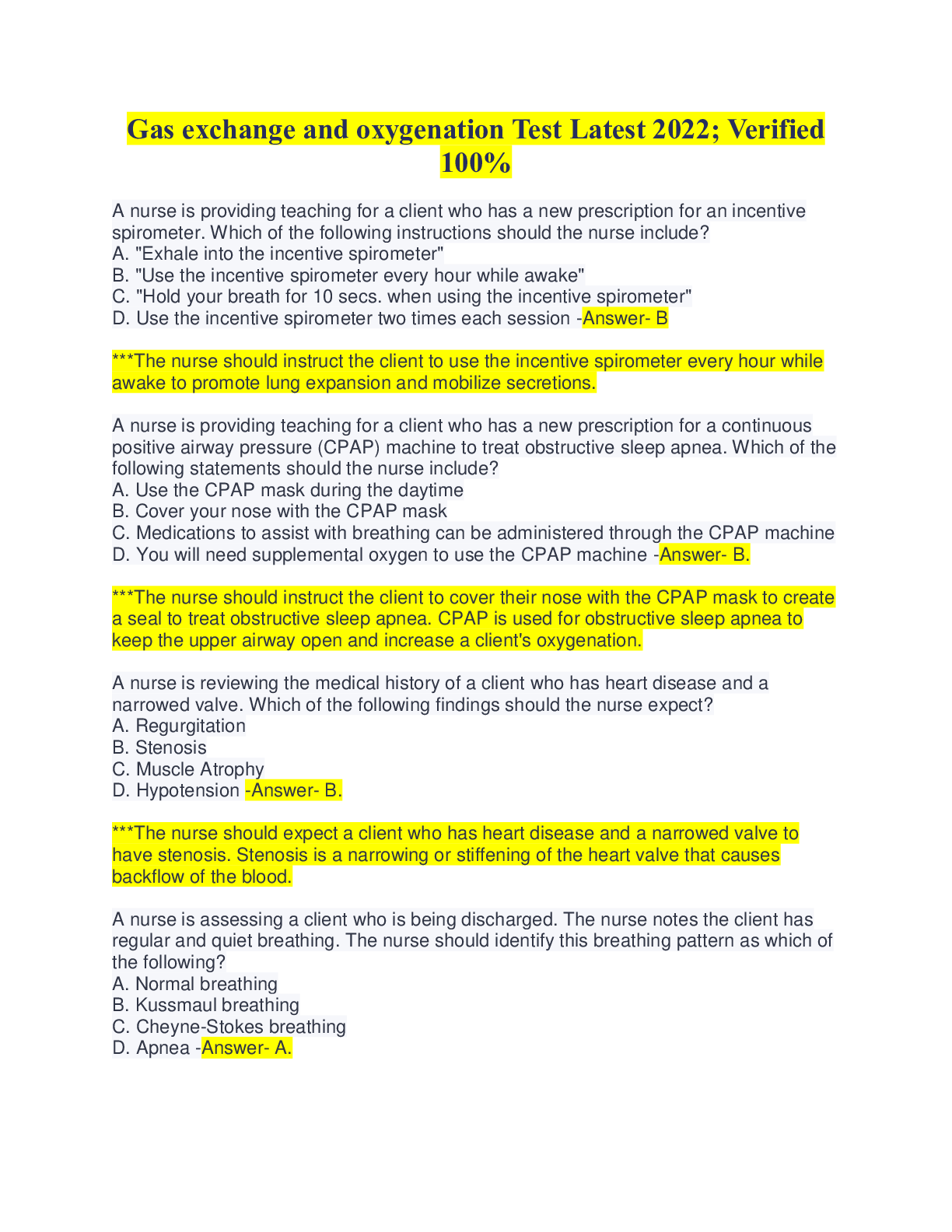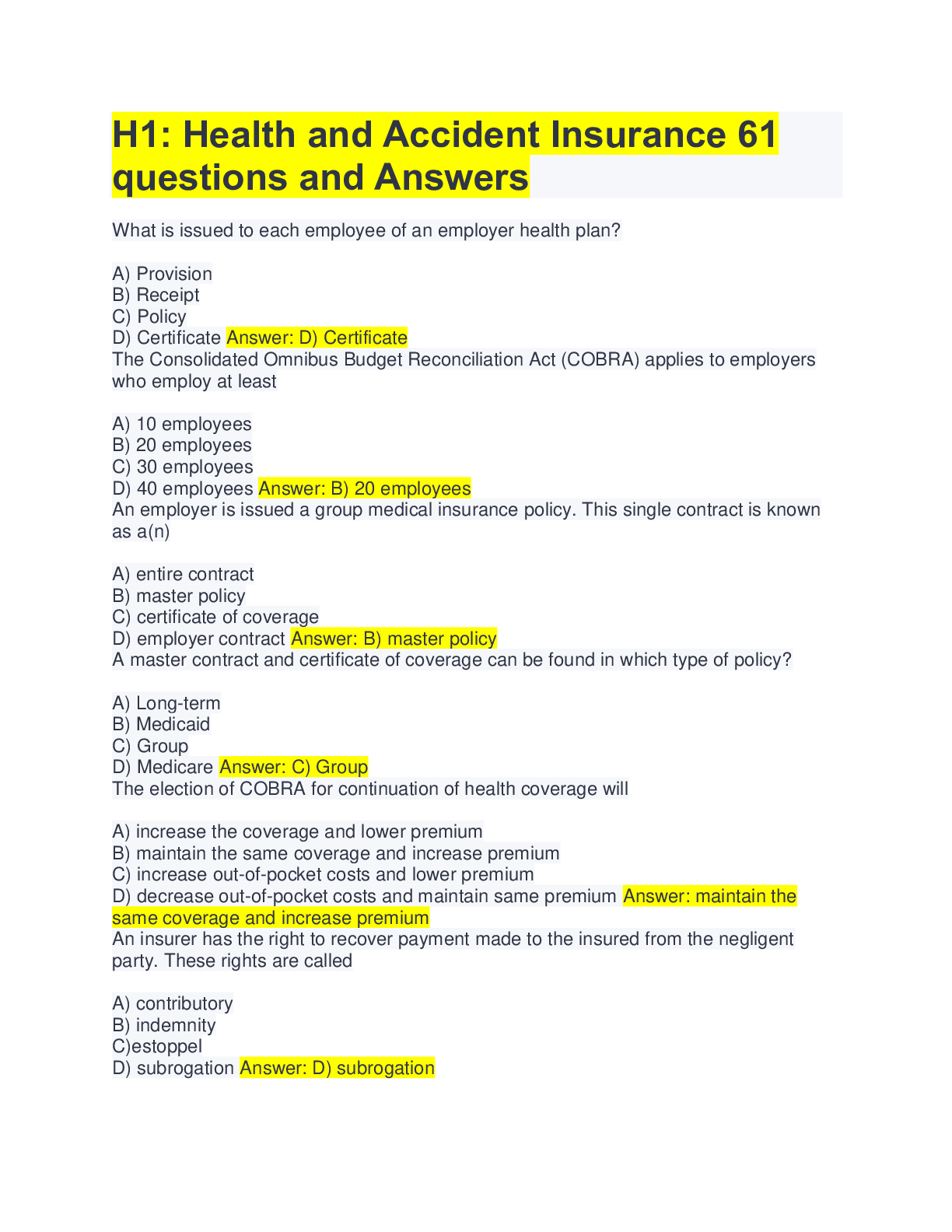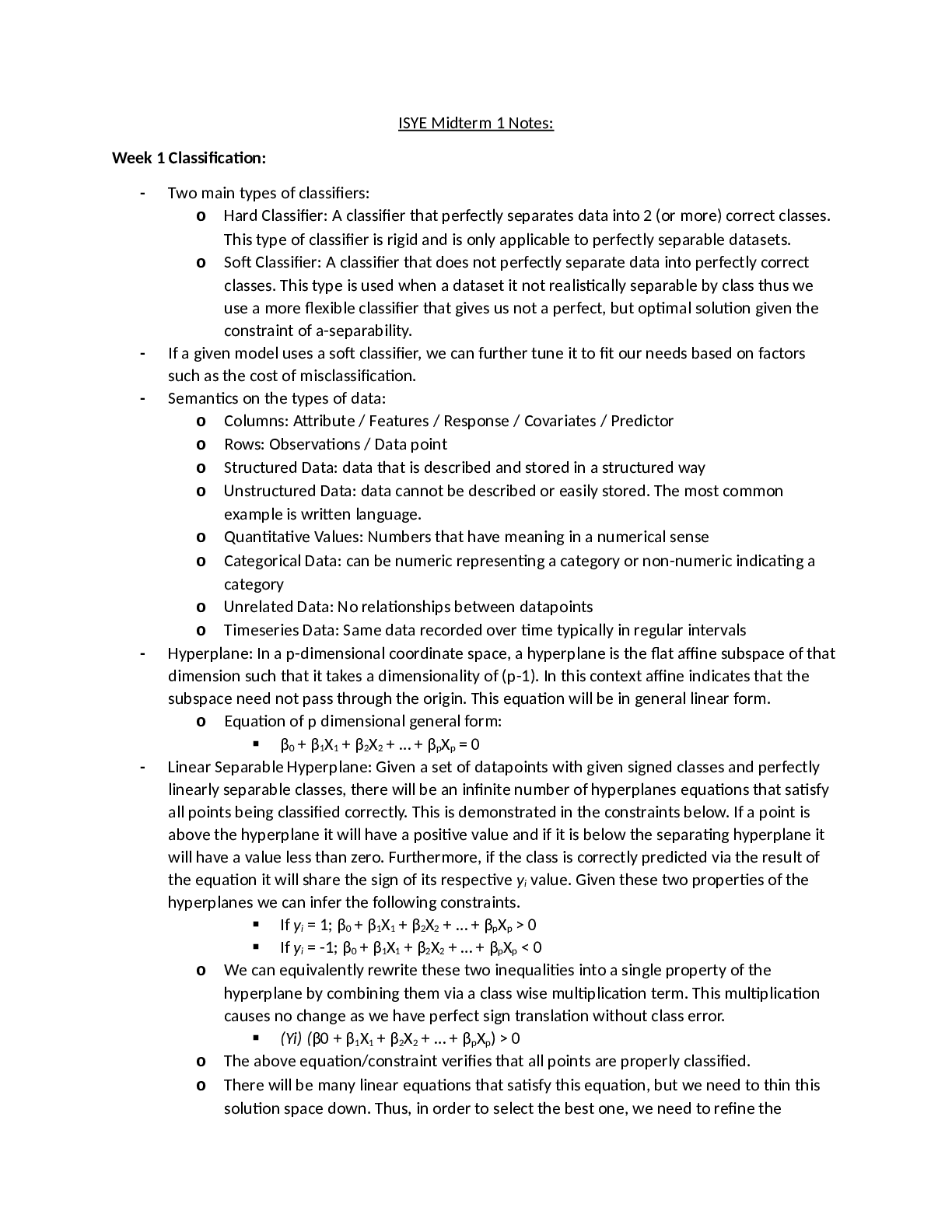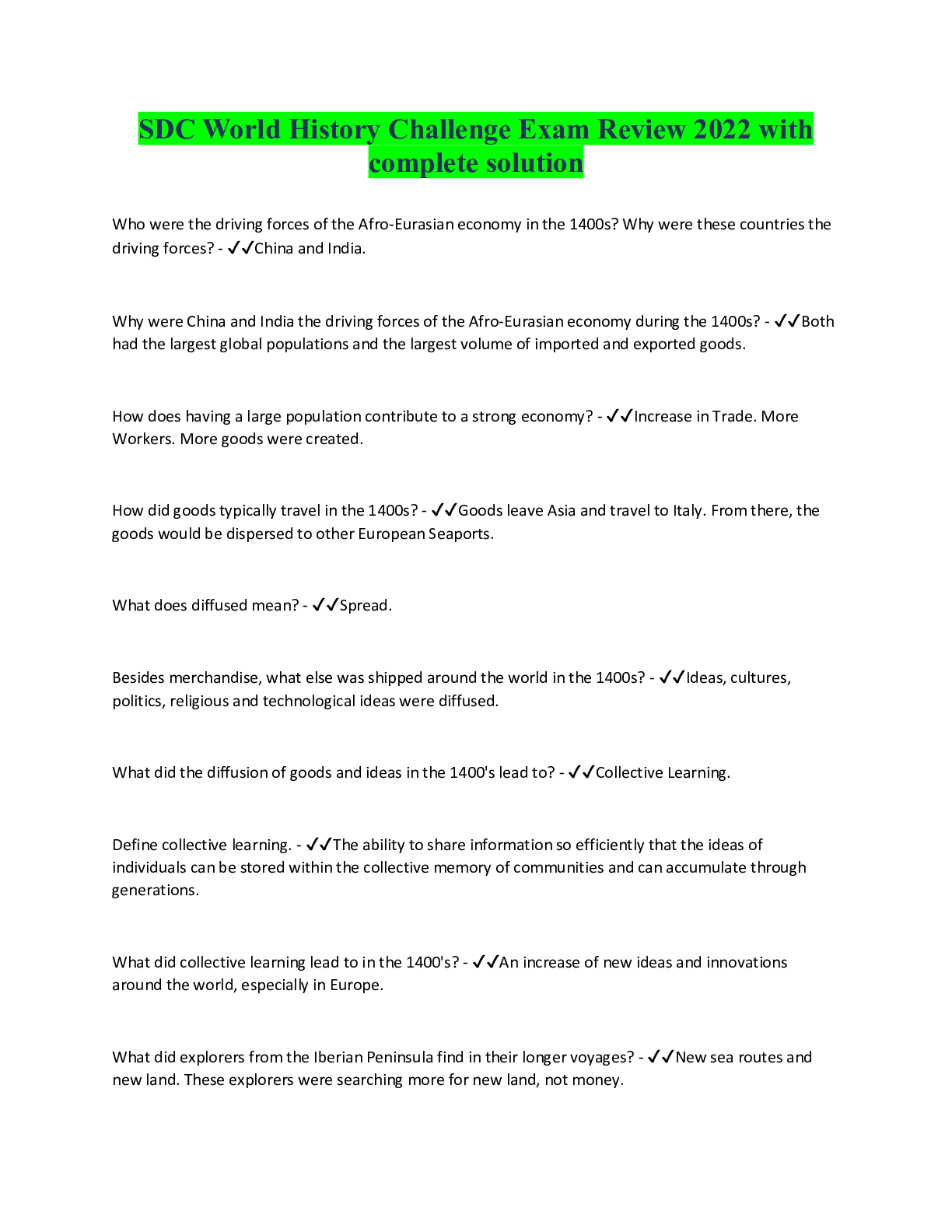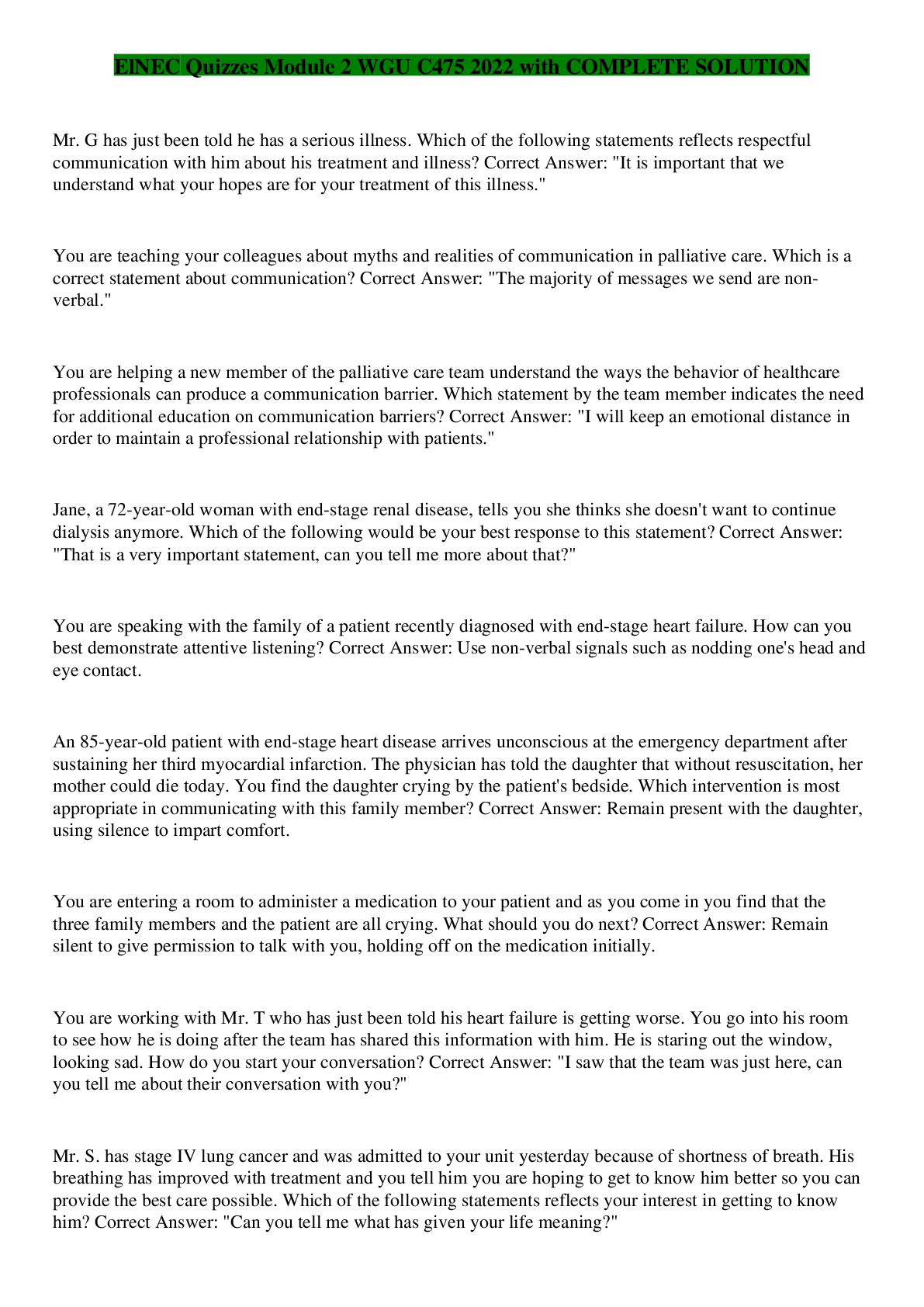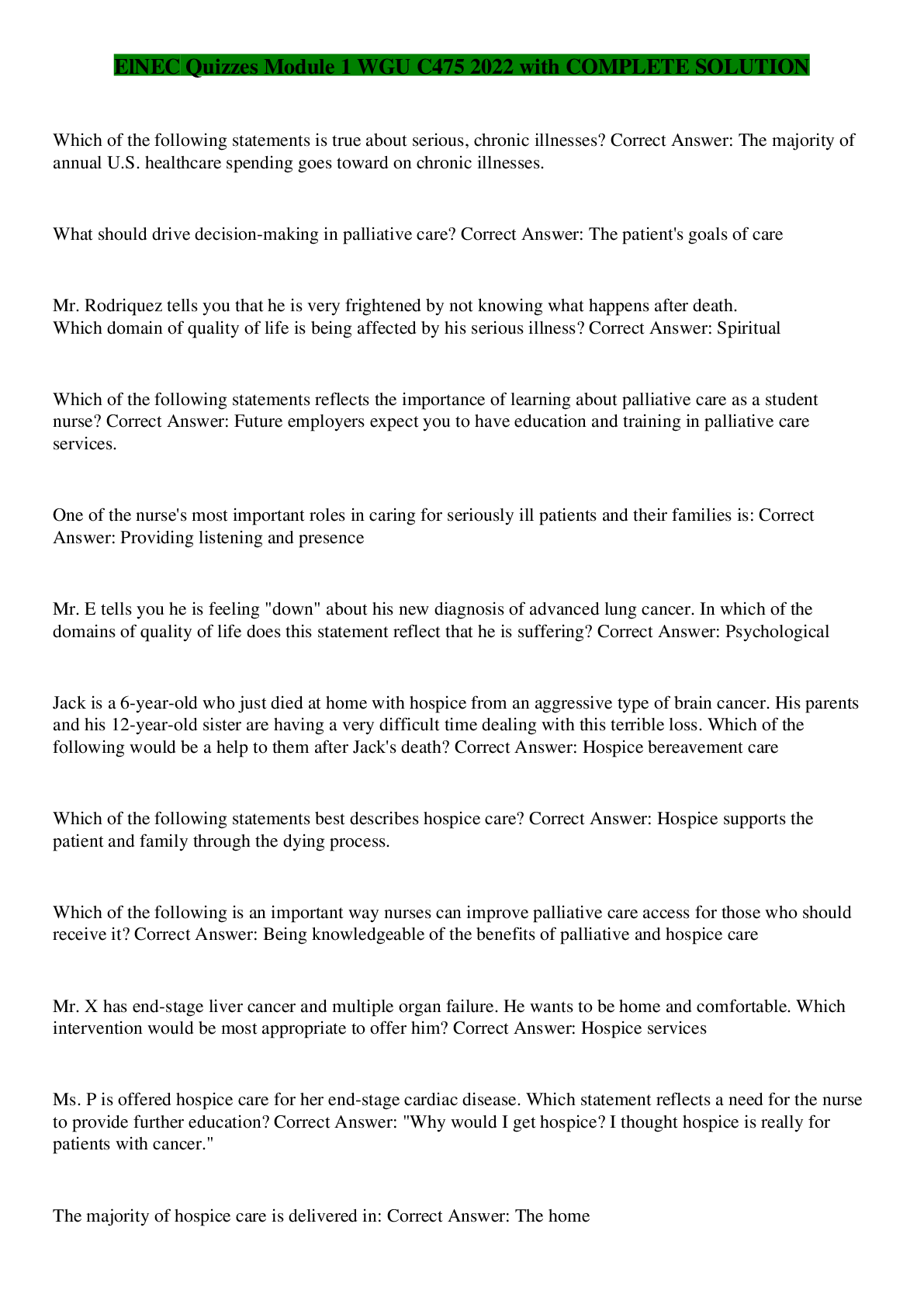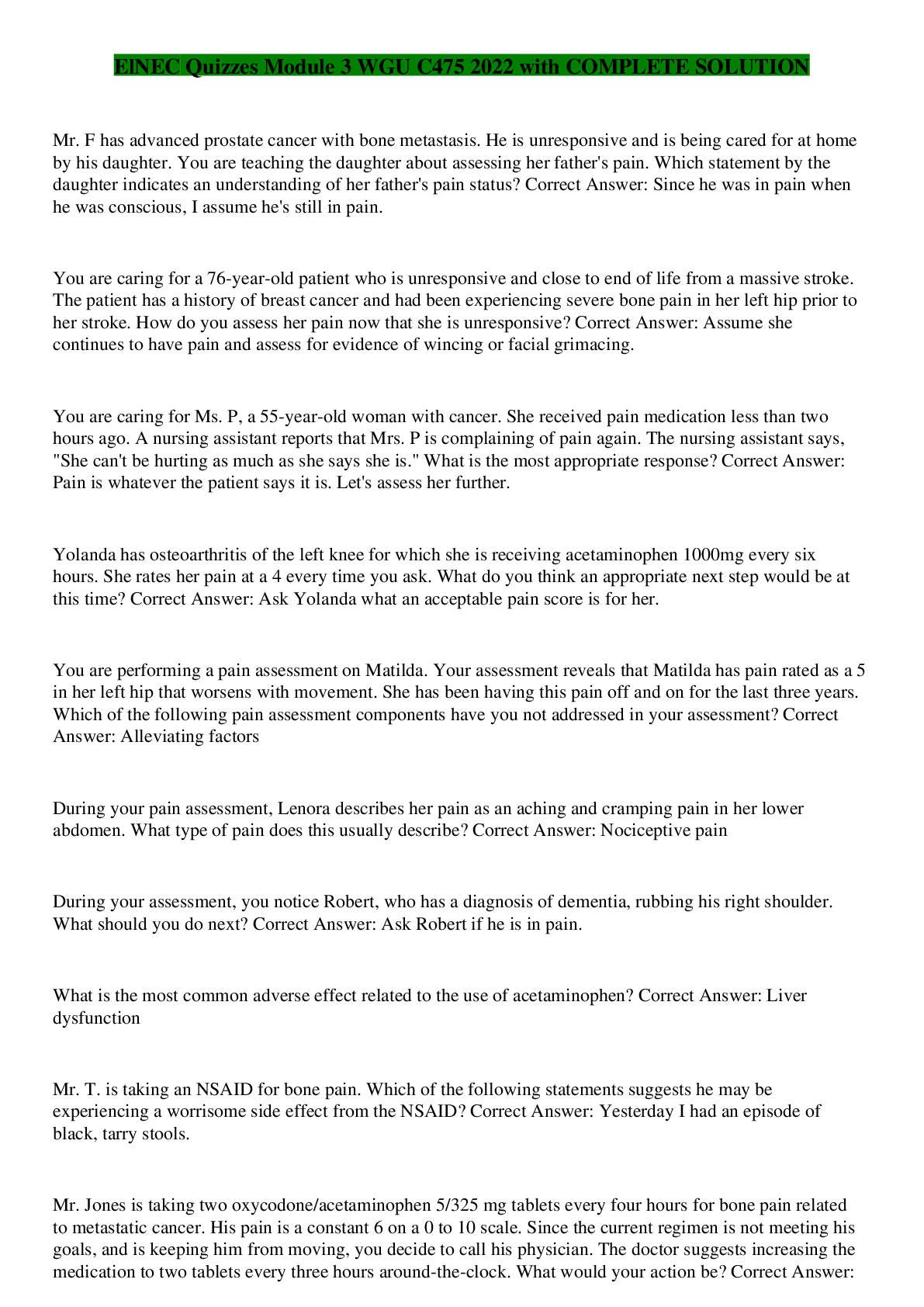Psychology > QUESTIONS & ANSWERS > TExES Pedagogy and Professional Responsibilities (PPR) Study Guide 2022 with complete solution (All)
TExES Pedagogy and Professional Responsibilities (PPR) Study Guide 2022 with complete solution
Document Content and Description Below
TExES Pedagogy and Professional Responsibilities (PPR) Study Guide 2022 with complete solution Accommodation -Answer- One of the processes that helps create equilibrium. According to Piaget, the pr... ocess by which existing mental structures (schemas) and behaviors are modified to adapt to new experiences Adaptation -Answer- Changing of existing knowledge structures (schemas) to fit new conditions. Either through: assimilation or accommodation Anorexia Nervosa -Answer- An eating disorder characterized by very limited food intake Assimilation -Answer- According to Piaget, the process by which new ideas and experiences are absorbed and incorporated into existing mental structures and behaviors Bulimia -Answer- An eating disorder characterized by overeating/binge eating (and a fear of not being able to stop eating) followed by purging by self-induced vomiting or laxatives. Centration -Answer- A young child's tendency to focus only on his or her own perspective of a specific object and a failure to understand that others may see things differently. Conservation -Answer- the realization that a change in the appearance of an object does not necessarily change the characteristics of the object. Constructivist Theories -Answer- belief that children are not passive in the learning process; each learner constantly and actively seeks information and meshes old knowledge with new to make it meaningful in building or constructing his or her knowledge. egocentrism -Answer- In Piaget's theory, the inability of the preoperational child to take another's point of view. equilibration -Answer- the constant innate search for a balance between what we already know and a new activity, skill, or social experience Imaginary Audience -Answer- Adolescents' belief that they are the focus of everyone else's attention and concern. maturation -Answer- internally determined to change metacognitive ability -Answer- the ability to think about one's own cognitive thinking processes and to use this process to facilitate learning. organization -Answer- continual process of arranging and connecting information, objects, and events within meaningful mental systems (schemata) personal fable -Answer- An adolescents belief that they are special in the sense of being unique, invulnerable, and omnipotent, so few can understand them Prepubescence -Answer- the period of life immediately before puberty, often marked by accelerated physical growth Puberty -Answer- the stage of adolescence in which an individual becomes physiologically capable of sexual reproduction Seriation -Answer- ability to arrange objects in an orderly fashion (in a series) using a quantitive dimension (size, for example) Stages of Cognitive Development -Answer- (Piaget) 1. sensorimotor 2. preoperational 3. concrete operational 4. formal operational Jean Piaget -Answer- <this person> contributed to the theory of child cognitive development. He proposed four stages of cognitive development: the sensorimotor (0-2 yrs) where the key feature is object permanence, preoperational (2-7 yrs) where the key feature is egocentrism, concrete operational (7-11 yrs) where the key feature is conservation, and formal operations (11+ yrs) where the key feature is ability to manipulate ideas mentally. Example: According to the theory of <this person> children should not be taught certain concepts until they have reached the appropriate stage of cognitive development. Sensorimotor stage -Answer- (ages birth to 2), where learning is through the senses and motor development Preoperational stage -Answer- (ages 2 to 7), where kids learn through pretend play but still struggle with logic and taking the point of view of other people Concrete Operations stage -Answer- (ages 7 to 11) where kids begin to think more logically but tend to struggle with abstract and hypothetical concepts Formal Operations stage -Answer- (ages 11 to adulthood) where adolescents begin to think more easily about abstract concepts and are capable of seeing multiple potential solutions to problems and think more scientifically about the world around them. Acculturation -Answer- successful application of new knowledge and use of new norms from another culture while retaining one's own native culture and language basic interpersonal communication skills (BICS) -Answer- as a language learner, being able to use conversational, everyday language (can take up to two years) biases -Answer- unfair preferences or prejudices toward particular groups of people Cognitive academic language proficiency (CALP) -Answer- as a language learner, being able to use a language for abstract, academic purposes (5-7 years) culturally relevant teaching (CRT) -Answer- a theory that underscores teaching practices grounded in the understanding of culture and experiences that shape students English as a second language (ESL) -Answer- a program or category pertaining to students whose native language is not English but who are learning English for academic purposes English language learner (ELL) -Answer- the current term used to describe a child who is learning English as a second language funds of knowledge -Answer- knowledge, skills, and experiences that families and communities practice that, when recognized by teachers, can enhance learning; usually refers to minority families whose knowledge and skills do not match typical school knowledge and skills least restrictive environment (LRE) -Answer- children who are differently abled are required by law to be placed in regular classrooms to the greatest extent possible. It is a principle stated in the law, IDEA. [Show More]
Last updated: 2 years ago
Preview 1 out of 26 pages
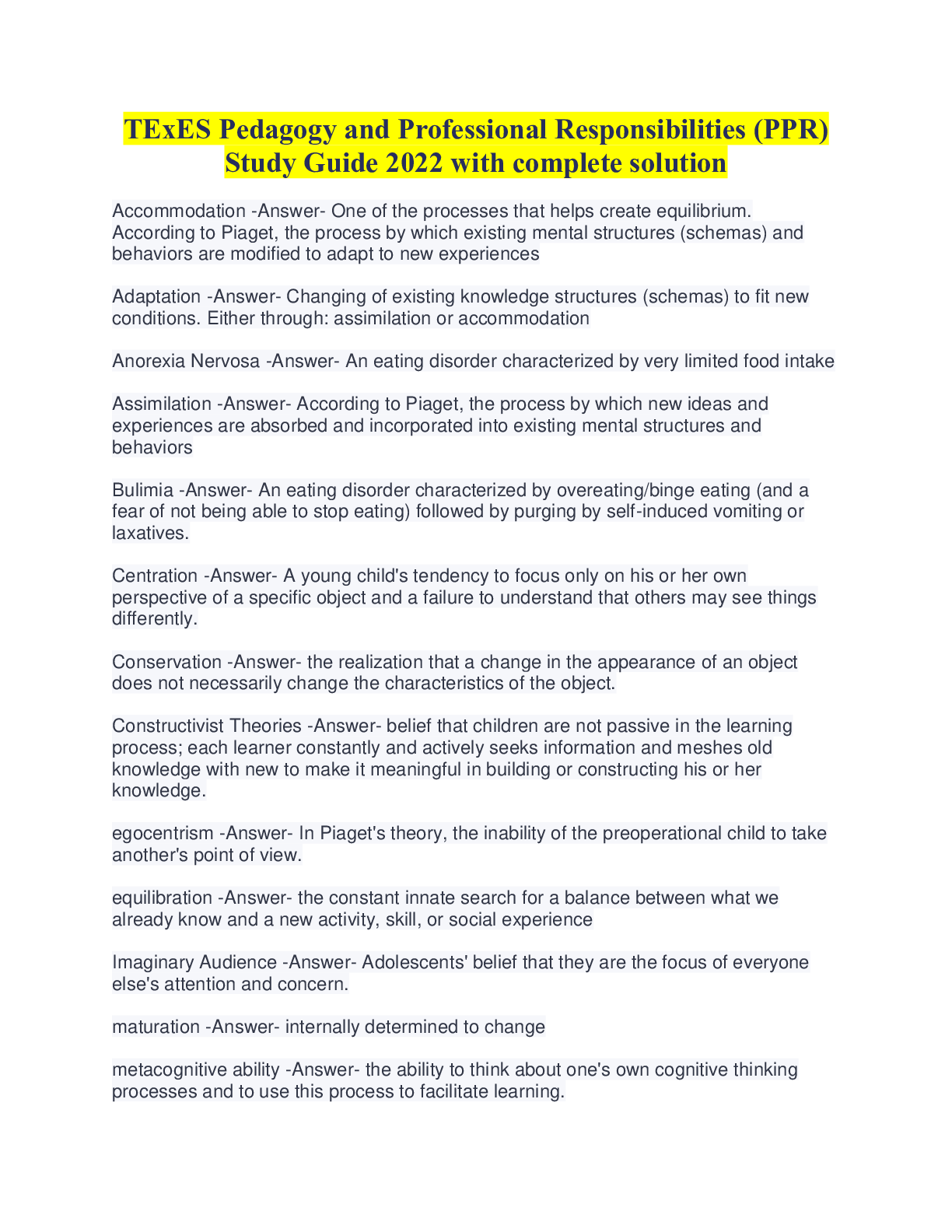
Buy this document to get the full access instantly
Instant Download Access after purchase
Buy NowInstant download
We Accept:

Reviews( 0 )
$8.00
Can't find what you want? Try our AI powered Search
Document information
Connected school, study & course
About the document
Uploaded On
Sep 12, 2022
Number of pages
26
Written in
Additional information
This document has been written for:
Uploaded
Sep 12, 2022
Downloads
0
Views
106


